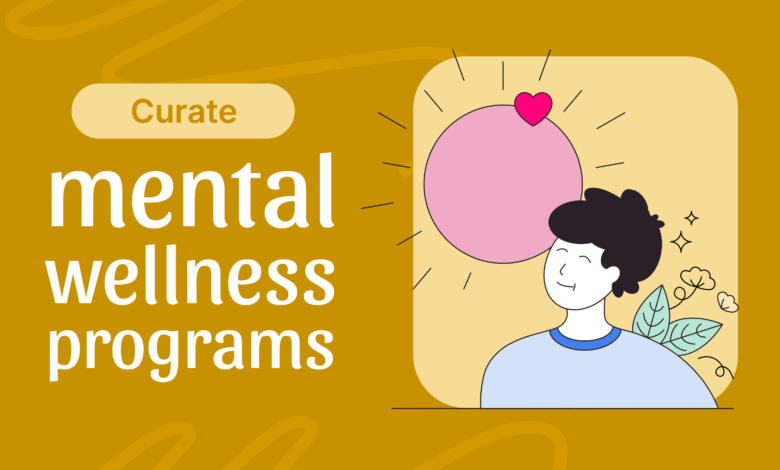Mental Wellness Activities: What Simple Habits Can Truly Improve Your Mind?

Have you ever noticed how some days your mind feels sharp and calm, while on other days even small things seem overwhelming? That’s the power of mental wellness. Just like we take care of our bodies with exercise and nutrition, our minds also need daily habits that keep them balanced and resilient. The good news is that achieving better mental well-being doesn’t always require huge changes. Often, it comes down to simple activities you can weave into your daily life.
In this guide, we’ll explore mental wellness activities that are practical, enjoyable, and effective. Whether you’re dealing with stress, looking to improve focus, or simply wanting a more positive outlook, these activities can make a difference.
Why Mental Wellness Matters
Before diving into activities, let’s ask: why does mental wellness deserve our attention? Mental health influences every part of life. It affects how we think, feel, and interact with others. When our minds are healthy, we handle stress better, build stronger relationships, and maintain a sense of purpose.
On the other hand, neglecting mental wellness can lead to fatigue, irritability, anxiety, and even physical health issues. Just as exercise strengthens muscles, mental wellness activities strengthen emotional resilience and improve overall quality of life.
Start Your Day With Mindful Breathing
One of the simplest mental wellness activities is mindful breathing. Before reaching for your phone or rushing into your day, take two minutes to breathe deeply. Focus on inhaling slowly through your nose, holding for a moment, then exhaling gently.
This practice grounds you in the present moment. It reduces morning stress and sets a calm tone for the day ahead. Many people underestimate the power of breath, yet it’s one of the most effective tools for immediate relaxation.
Journaling to Clear Your Thoughts
Journaling is like giving your mind a safe space to unload. By writing down your thoughts, worries, or even small daily wins, you create clarity and reduce mental clutter.
Some people enjoy gratitude journaling—listing three things they’re thankful for each day. Others prefer free writing without structure. Both approaches work because they provide emotional release and improve self-awareness. Over time, journaling can boost mood and highlight patterns in your thinking.
Move Your Body for Mental Balance
We often think of exercise as a physical activity, but it’s also one of the best mental wellness boosters. Movement increases endorphins, which are natural mood lifters. Even light activities like walking, stretching, or dancing in your living room can reduce stress and clear mental fog.
The key is consistency. You don’t need an intense workout routine; simply moving your body for 20 to 30 minutes most days can make a huge difference. Exercise acts like a reset button for both the body and mind.
The Power of Nature Walks
There’s something healing about being outdoors. Spending time in nature has been shown to lower stress hormones, improve mood, and enhance focus. A short walk in the park, listening to birds, or feeling the sun on your skin connects you back to the present moment.
If you live in a busy city, even a few plants at home or a balcony with fresh air can help. The goal is to step away from screens and soak in the calming effect of nature.
Meditation for Inner Calm
Meditation may seem intimidating at first, but it’s simply the practice of sitting quietly and focusing your attention. You don’t need to meditate for hours—a few minutes daily is enough.
Guided meditations are great for beginners, while experienced practitioners may enjoy silent sessions. Meditation improves concentration, reduces anxiety, and builds emotional stability. Think of it as a workout for your mind, strengthening your ability to handle challenges calmly.
Creative Expression as Therapy
Engaging in creative activities like painting, writing poetry, cooking, or playing music can be incredibly therapeutic. Creativity allows your mind to process emotions in nonverbal ways and brings a sense of joy.
You don’t need to be an artist to benefit. The process matters more than the result. Even simple doodling or trying out new recipes can lighten your mood and give you a sense of accomplishment.
Digital Detox for Mental Clarity
Screens dominate our lives, and while technology is useful, constant notifications can overwhelm the brain. A mental wellness activity worth practicing is taking regular digital detox breaks.
Set aside an hour each evening without screens, or dedicate one day a week to unplugging. During this time, focus on offline hobbies, conversations, or rest. Disconnecting helps reduce anxiety and improves focus.
Practicing Gratitude
Gratitude is a powerful activity that reshapes the way you see the world. By actively appreciating small things—like a good meal, a friend’s message, or even a sunny day—you train your brain to focus on positives instead of negatives.
Practicing gratitude daily has been linked to better sleep, improved mood, and stronger relationships. It doesn’t take long but has long-lasting effects on mental wellness.
Social Connections and Support
Humans are social beings, and meaningful connections are vital for mental wellness. Spending time with loved ones, joining a group, or even having regular phone calls with friends provides emotional support.
Even if you’re introverted, maintaining a few close connections helps prevent feelings of isolation. Conversations allow you to share struggles, gain perspective, and feel understood.
Yoga for Mind-Body Harmony
Yoga combines physical movement, breathing, and mindfulness, making it one of the best activities for both physical and mental health. It reduces stress, increases flexibility, and creates inner balance.
Even short daily sessions can help. Many people find that yoga improves sleep quality and enhances self-awareness, making it a powerful mental wellness practice.
Reading for Relaxation
Books offer an escape from daily stress. Reading stimulates the brain, reduces tension, and can even increase empathy. Fiction lets you dive into new worlds, while self-help books offer tools for personal growth.
Dedicating just 20 minutes a day to reading can calm your mind and provide a healthy break from screens.
Music as Mood Therapy
Listening to music is more than entertainment—it’s a proven mental wellness activity. Calming tunes reduce stress, upbeat songs boost energy, and nostalgic tracks bring comfort.
Creating playlists for different moods can help you manage emotions throughout the day. Some people even find singing or playing instruments therapeutic.
Laughter and Play
Never underestimate the power of laughter. Watching a funny movie, sharing jokes with friends, or playing games brings joy and reduces stress hormones. Playful activities remind us not to take life too seriously.
Laughter truly is medicine for the mind. It’s a quick and natural way to improve mood and strengthen bonds with others.
Sleep Rituals for a Rested Mind
Sleep directly affects mental wellness. Instead of just focusing on sleep hours, build a relaxing bedtime routine. Dim lights, read a book, sip herbal tea, or practice gentle stretches before bed.
Good sleep hygiene supports memory, emotional regulation, and stress management. A consistent sleep schedule is one of the most underrated mental wellness hacks.
Volunteering and Helping Others
Acts of kindness not only benefit others but also boost your own mental health. Volunteering or helping someone in need creates a sense of purpose and connection.
Even small gestures—like holding the door, offering a compliment, or donating to a cause—trigger positive feelings and reduce stress.
Mindful Eating
Eating slowly and appreciating your meals can also improve mental wellness. Mindful eating means paying attention to flavors, textures, and hunger signals.
This activity reduces overeating, improves digestion, and creates a deeper appreciation for food. It’s about being present rather than rushing through meals.
Goal Setting for Motivation
Having clear, achievable goals gives your mind direction. These don’t need to be huge life goals—small daily goals like “take a 10-minute walk” or “read a chapter” can create motivation.
Reaching goals builds confidence and helps you feel in control. Progress, even small steps, is a powerful driver of mental wellness.
Combining Activities for a Balanced Routine
The best part about mental wellness activities is that you can mix and match them. For example:
- Start the morning with breathing exercises.
- Take a nature walk in the afternoon.
- Journal before bed.
Consistency is key. Over time, these small habits create a strong foundation for emotional and mental well-being.
Final Thoughts: Building a Healthier Mind
Mental wellness isn’t about eliminating all stress—it’s about building resilience and balance. By practicing simple activities like mindful breathing, journaling, movement, gratitude, and digital detoxes, you can strengthen your mental health.
The beauty of these activities is that they’re flexible. You don’t need to commit hours each day; even a few minutes of mindful action makes a difference. The goal is to make these practices part of daily life so they become natural habits.
Remember, taking care of your mind is just as important as taking care of your body. With the right activities, you’ll not only feel calmer and more focused but also create space for joy, creativity, and connection.
So, what mental wellness activity will you try today?



